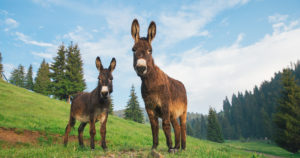Ĉu vi parolas esperanton? bab.la launches an Esperanto-English dictionary
(Hamburg, June 30th, 2015) The bab.la dictionary is proud to announce the launch of its 40th dictionary: Esperanto-English. This is the first constructed language to be added to the collection of bab.la dictionaries.
Since its creation in the late 19th century by Zamenhof, Esperanto has seen ups and downs in its usage but has undergone a resurgence of popularity in the last decade with an increasing amount of articles on the Internet and real-life meetings around the globe. The age of digitalization linked the Esperanto amateurs scattered around the world, sharing their knowledge and experience online.
“Since the publication of Fundamento de Esperanto, the foundation of Esperanto, in 1905, a lot of work has had to be done to modernize the language with new words coined in past decades,” says John Barré, Product and Marketing Manager at bab.la. “We wanted to gather this knowledge in one dictionary that could be used for free by any Esperanto learners.” Esperanto is considered to be the easiest language to learn and the number of speakers is estimated to be two million users, a number steadily growing.
Esperanto speakers will be excited to find a place where they can look up words both in English and in Esperanto in a mobile-friendly, responsive design, along with additional content such as Esperanto quizzes and flash cards to learn new words.
The Esperanto-English dictionary can be accessed here:
http://en.bab.la/dictionary/esperanto-english/
About bab.la:
bab.la (http://bab.la/) is an interactive language portal offering bilingual dictionaries, vocabulary lessons, language quizzes, and language games all for free. Currently available in 27 different languages (English, Arabic, Chinese, Czech, Danish, Dutch, Finnish, French, Esperanto, German, Greek, Hindi, Hungarian, Indonesian, Italian, Japanese, Korean, Norwegian, Polish, Portuguese, Romanian, Russian, Spanish, Swahili, Swedish, Thai, Turkish and Vietnamese), the site operates on a wiki – style model, allowing users to contribute content and feedback. bab.la was founded in 2007 by Dr. Andreas Schroeter and Patrick Uecker. Since April 2015, bab.la has been part of the Oxford Dictionaries family at Oxford University Press.
Contact:
Media enquiries: api-blog.oxforddictionaries.com/contact-us
Twitter: @babla | Facebook: http://www.facebook.com/babla.languages | Google+: bab.la




